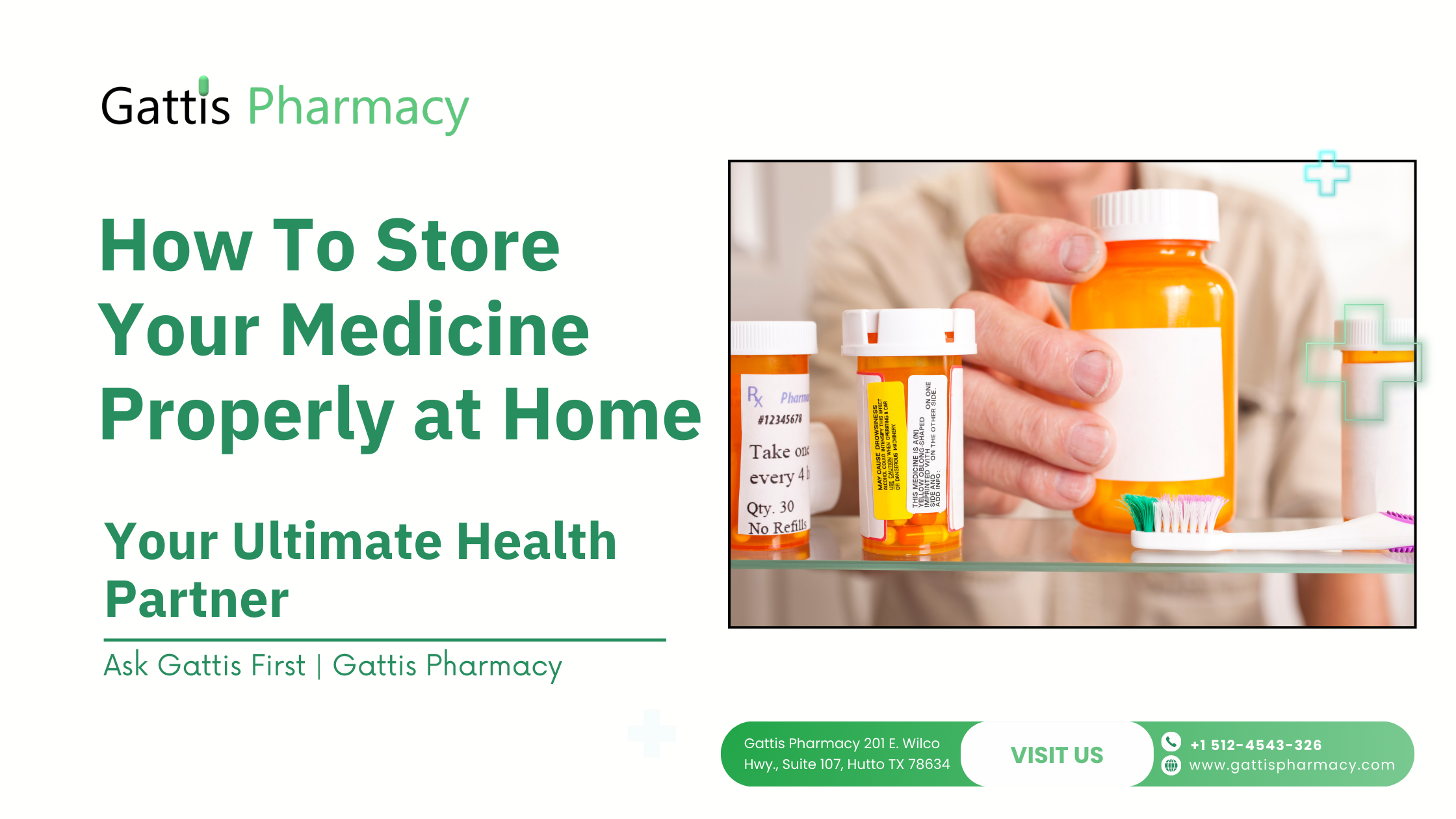Medicines should always be kept away from the reach of children and safely stored in a good location. When you learn how to store your medicine properly, the result would be effective medications , zero accidental harm, and safety in your home.
Medicines improperly stored may lose potency, degrade chemically, or even become harmful. Learn how to store your medicines safely at home so they stay effective, safe, and usable — tips on temperature, moisture, light, expiration, and organizing.
How To Store Your Medicine Properly & Why It Matters
Every medicine comes with specific instructions (on the packaging or from your pharmacist) about how to store it. These directions are there because conditions like heat, humidity, light, and air exposure can change the way a drug works. For example:
- High temperatures accelerate chemical breakdown of active ingredients.
- Moisture causes pills to soften, swell, or dissolve improperly.
- Light (especially sunlight or UV) can degrade medicines in transparent or translucent bottles.
- Air exposure (if containers aren’t sealed) can lead to oxidation, which may reduce strength or create unpleasant odor or appearance.
If medicines become bad, they might no longer treat the condition properly. Worse, they could cause unintended side effects.
That’s why storing medicines properly matters not just for effectiveness but safety too.
The Ideal Temperature To Store Your Medicine Properly
How to store your medicine properly…
- Store at room temperature between about 59°F and 86°F (roughly 15°C to 30°C). If temperatures are regularly higher or lower, that can damage many drugs. PMC+2Baystate Health+2
- Humidity should be kept under around 60% relative humidity. High moisture damages pills and can foster mold or bacterial growth. Polygon Group+2Coolermed+2
- If a medication requires refrigeration, follow the label: typically between 2°C and 8°C (36°F-46°F). Keep refrigerated meds in the main compartment of the fridge, not the door, to avoid temperature swings. Veterinary Medicine at Illinois+1
Common Household Mistakes to Avoid
- Storing medicines in bathrooms or near sinks: humidity and steam are big enemies.
- Keeping meds above or near heat sources: top of the stove, oven, heater vents, etc.
- Letting medicines sit in cars, glove compartments, or trunks where temperatures can rapidly rise.
- Mixing medicines in unmarked containers or decanting into other bottles without preserving original labels.
- Leaving transparent bottles in windows or other places exposed to sunlight.
Organizing & Labeling Your Medications
- Keep all medicines in their original containers with labels intact. That includes prescription bottles, OTC packaging, instructions, child-safety caps if included.
- Group medicines by usage or by time of day to help avoid mistakes (for example, morning meds together, evening meds together).
- If using a pill organizer or multi-compartment box, only move medicines into it if safe to do so (some medications are sensitive and need their original packaging).
- Maintain an inventory: note expiry dates when you bring medicine home; mark or set reminders to check them periodically.
Detecting When a Medication Might Be Compromised
Watch for warning signs:
- Change in appearance: pills discolored, cracked, or broken; liquids cloudy or with sediment; creams with separation or odd smell.
- Unexpected expiry or past “use by” dates. Even if a medicine looks okay, an expired drug may be less effective.
- Unusual smell. Some medications may develop a chemical odor or musty smell when compromised.
If you see these, do not use the medicine — consult your pharmacist for disposal advice or whether it might still be safe.
Proper Disposal of Unused or Expired Medicines
- Use pharmacy take-back programs or disposal drop-offs when available. Your pharmacist can point you to safe places in your community.
- If no take-back is available, follow guidelines: remove identifying information, mix medicine (if local rules allow) with undesirable substances like coffee grounds or kitty litter, seal in a bag or container, then throw in the trash. Only flush medicines if the label or your pharmacist explicitly says it is safe to do so.
How Gattis Pharmacy Helps Ensure Safe Storage
- When you receive prescriptions, we will inform you if a medicine needs special storage (e.g. refrigeration, protection from light).
- We offer guidance on how to organize your medicine supplies at home, including recommending storage containers that protect from moisture or light.
- We can assist with safe disposal of expired or unused medicines and help you build a system (labeling, reminders) to avoid keeping compromised meds.

